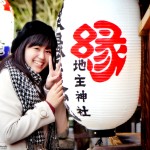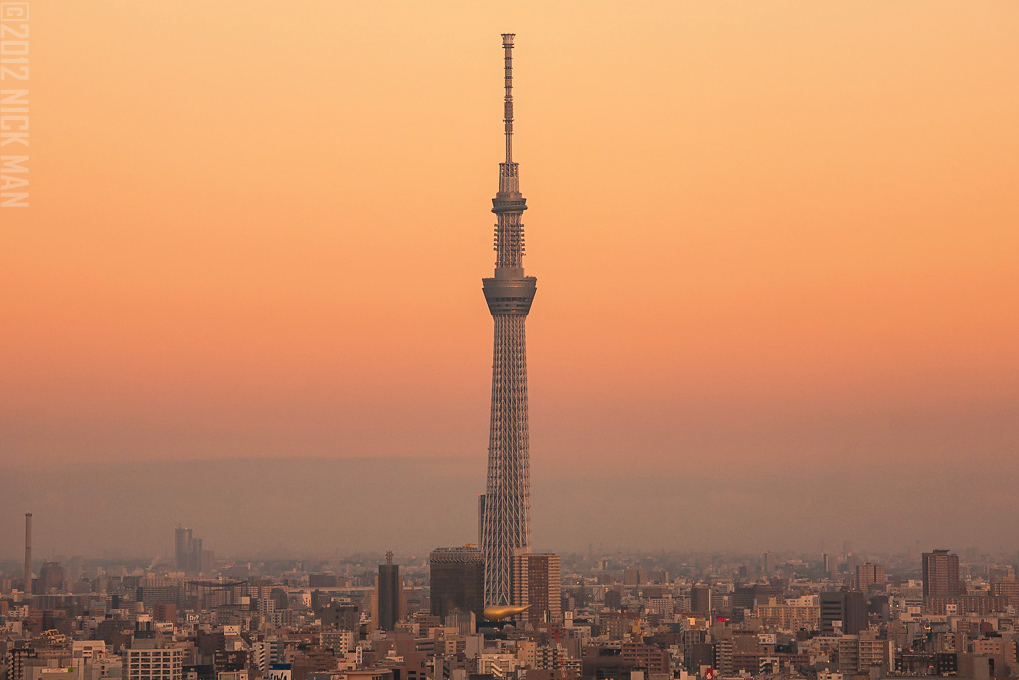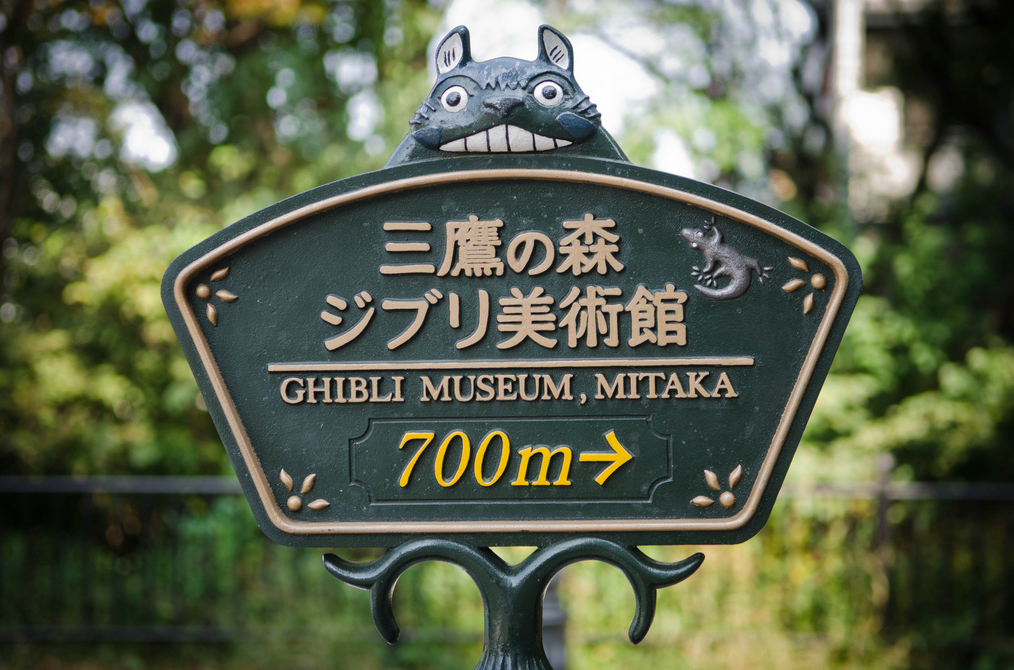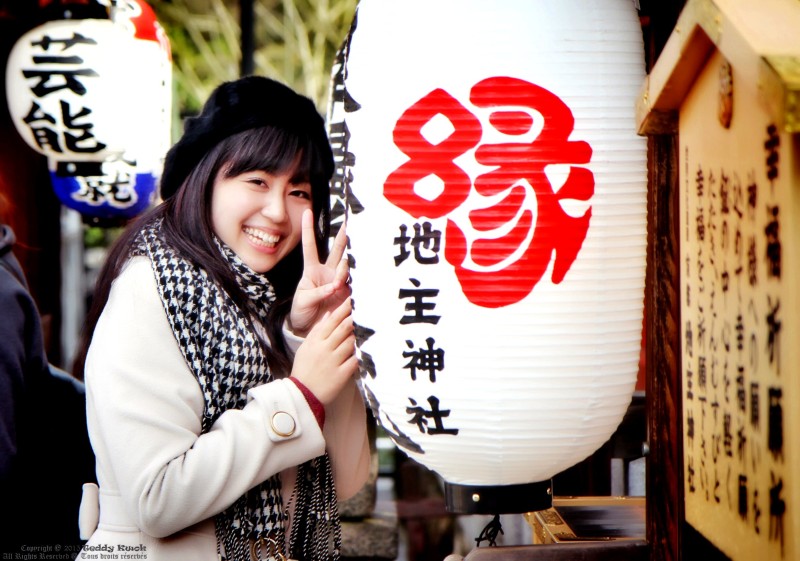
Japan is a country very different from the rest. We may even call it a whole different world. With its unique culture come a number of customs and manners that are good to know about before traveling. Hope you enjoy Japanese unique culture.
1. Bowing
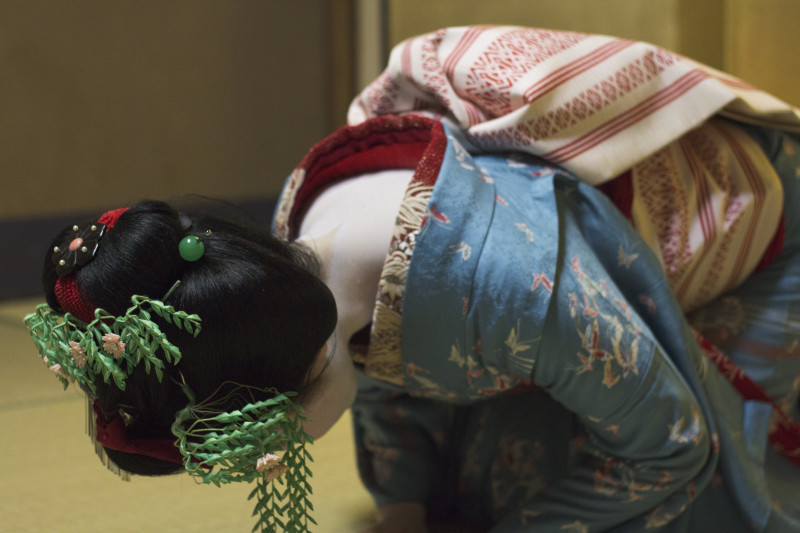
Japanese people often bow in front of each others. Being it to show gratitude or to say “sorry”, you should keep in mind that it is nice to bow and you shouldn’t be startled if someone bows in front of you. You don’t have to do anything special – just a short head bow is enough most of the time. Deeper bows are made when you want to accentuate your feelings. If you really did something wrong or are extremely grateful for something, it’s ok to bow deeper.
2. Table manners

When eating, it’s polite to say “itadakimasu” before starting and “gochisousama deshita” when finished. Also, there are a few chopstick rules you should follow. Don’t stab food with your chopsticks and never wave them around or point them at the person in front of you. You should also never pass food using your chopsticks. This is only done during cremation rituals when somebody dies, and doing so with food is extremely rude and will offend the other person.
3. Train etiquette
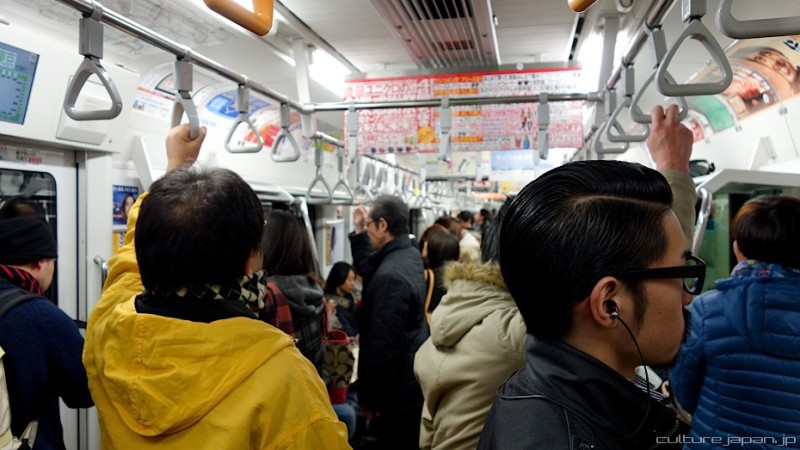
Japanese trains are usually very quiet. Even if people talk, they don’t do it in a loud matter. It’s also considered bad manner to talk on the phone while on train or to let your phone ring. If you receive an important call, answer it and tell the other person you will call later, but do it in a soft voice. Another thing you should keep in mind about train is that there are priority seats for elderly, disabled persons and pregnant women. If you by any chance use such a seat, always get up when someone is in need.
4. Shoes
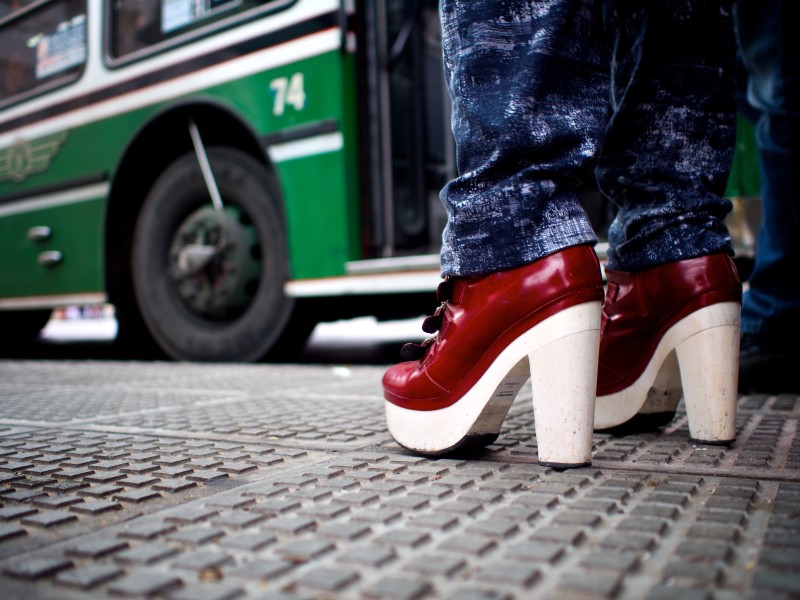
When entering a Japanese house, you must take your shoes off. Even if the host doesn’t tell you so, always remember to do it. This rule also applies when you are at a store and want to try some clothes on. Always take your shoes off before entering the dressing room. You may also be asked to do so at some hotels. You will be provided with slippers to get to your room. Don’t forget to do the same when you leave – come to the hotel’s entrance in the slippers and put your shoes on there.
5. Sitting down
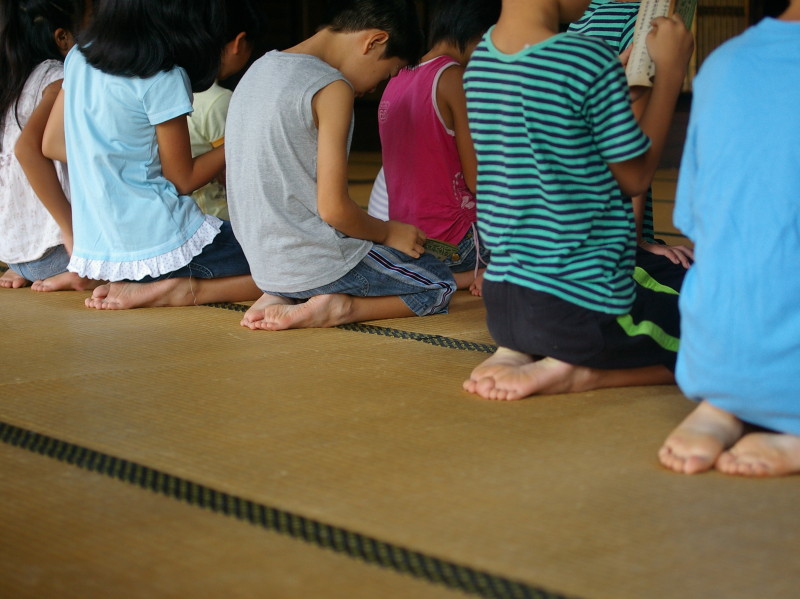
Sitting on the floor in Japan is usual in some situations. You might be required to sit on the floor at some traditional restaurants where food is served on low tables while guests sit on pillows. The formal way of sitting for both women and men is seiza, which means kneeling with your both legs touching. In less formal situations, women sit with their both legs to one side while men sit cross legged.
6. Tipping
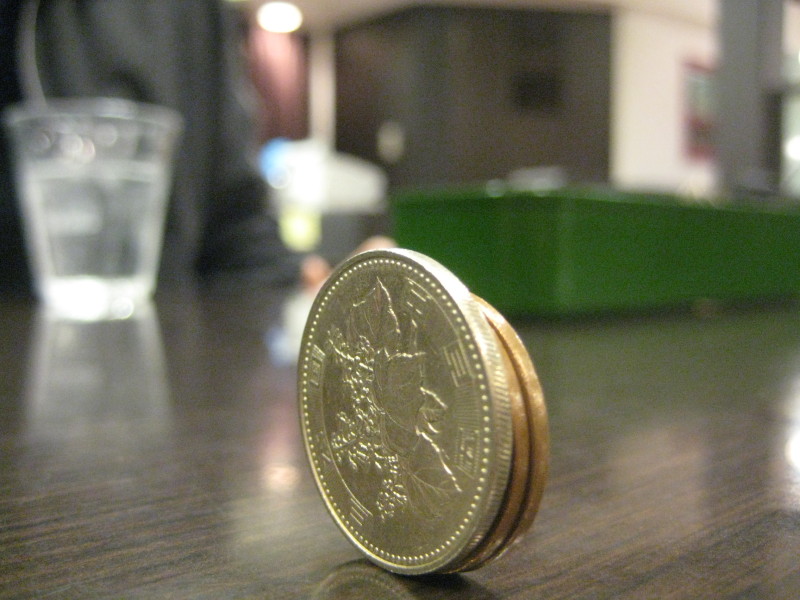
Unlike most western countries, tipping is not a custom in Japan. If you insist on leaving a tip, you might find the store clerk chasing after you to give you the “forgotten” money. However, there are some situations where you can tip. You can do this if you stay at a luxurious ryokan (Japanese style inn) for example. But never take the money directly from your pocket and offer them because besides being considered rude, it may also cause some confusion. If want to tip no matter what, put the money in an envelope first.
7. Onsen manners

The shoes rule also applies for onsens. Take your shoes off when entering the establishment. Slippers will always be provided. You will be required to wash yourself with a small shower head before entering the hot spring. Why clean yourself if you are entering water anyway? Because cleanliness is greatly valued in Japan. You can’t risk of brining dirt into a bath which is also used by other people. After washing, you will be given a towel. You should put it next to the basin beside you or place it on your head, but never put it inside the water.
8. Smoking

A few years ago it was not the case, but smoking on the street started being banned by several Japanese cities in the recent years. This specifically refers to smoking while walking, because there are special designated areas where you are allowed to smoke. It’s easy to spot them – even if you can’t read kanji, just look for street ashtrays. Keep in mind that failing to follow this rule might get you fined! Some cities have policemen that patrol especially to find smoking rule breakers.
9. Blowing your nose

Blowing your nose in public is considered rude in Japan. But what to do in situations when you really can’t hold it in? This can happen especially in winter or if you have a cold. In such cases, try to find a nearby restroom or if there isn’t any, go to a place that isn’t too crowded and blow your nose discreetly. If it happens on a train or bus there isn’t much you can do though. You should try to resist until the destination.
10. Umbrella etiquette
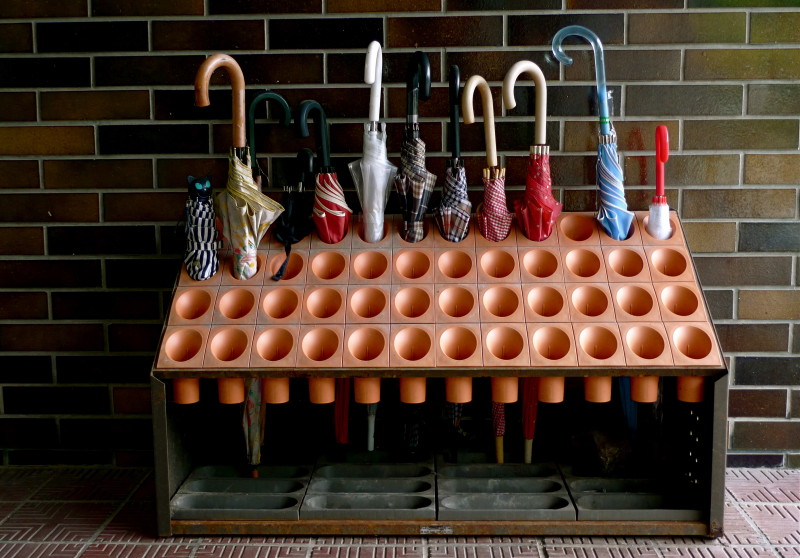
When raining outside, you should keep in mind that entering shops or restaurants with your dripping umbrella is a big no-no. All establishments provide special umbrella plastic bags, umbrella stands in front of the entrance. If you are not comfortable with leaving your umbrella outside and you’re not sure if the place has umbrella bags, you can always carry a small plastic bag with you when it rains outside.
11. Apologizing and showing gratitude
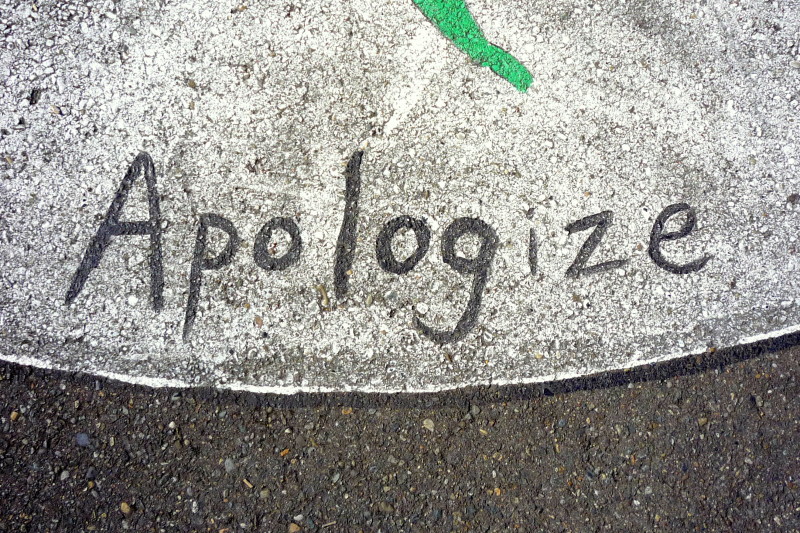
You will often hear Japanese people saying “thank you” or apologizing, even for very small things that are apparently unimportant. Like receiving the grocery bag at the store or getting into someone’s way on the street. This is because Japan’s culture emphasizes politeness. You should always remember these two words: “arigatou gozaimasu” – thank you and “sumimasen” – sorry. When using them, you should also do a short bow after.
12. Standing in line
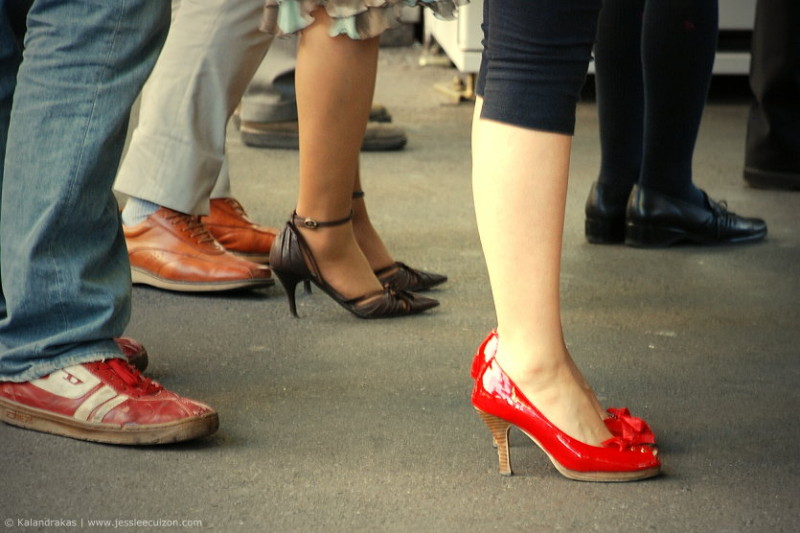
People standing in long lines is something extremely common in Japan, especially in large cities like Osaka or Tokyo. You will see lines for bathrooms, lines for restaurants, lines at amusement parks or lines for trains and buses. Some can get really long and have you waiting for a while, but you should never break the lines, just patiently wait without making a fuss. It may sound like something obvious that any person with common sense does, but you would be surprised to find out how many people break this rule.
13. Eating while walking
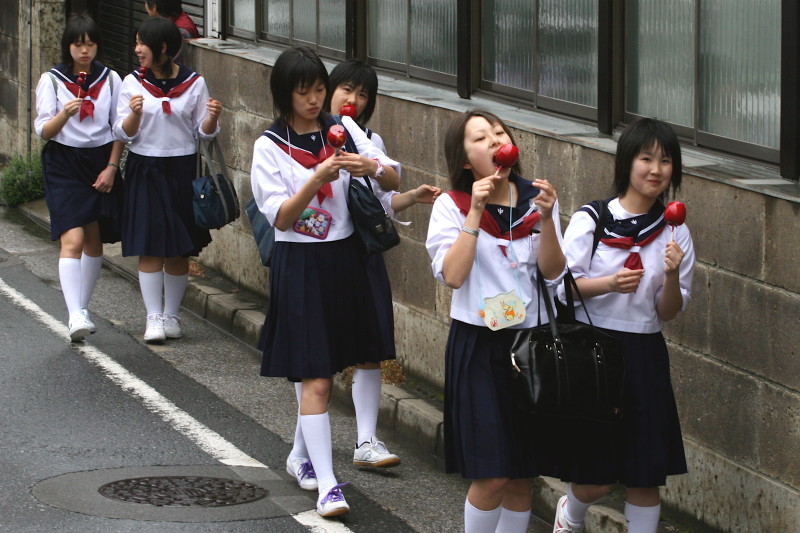
It is considered bad manners to eat while walking on the street or inside the trains or buses. There is not a definite reason for this unspoken rule. Some people say it’s because you can spill food on other persons or because eating is an activity that needs paying respect. While most of the young population doesn’t care about this rule anymore, there are still a lot of people who find it important. But regardless of how Japanese people see it, eating while walking is not safe anyway, so better sit down somewhere and properly enjoy your meal!
14. Physical contact
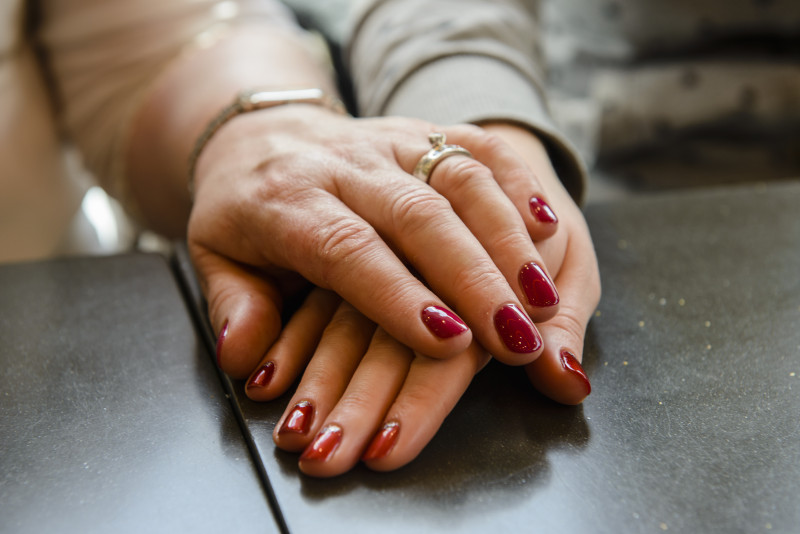
In most western countries, people find it normal to become extremely friendly with strangers from the first meeting. Things like patting them on the back don’t seem like a big deal. But the situation is different in Japan. For any kind of body contact, as trivial as it may seem, people need to be close. Japanese people are usual extremely shy and reserved around strangers. You should refrain from any actions that could make them seem uncomfortable.
15. Wearing masks
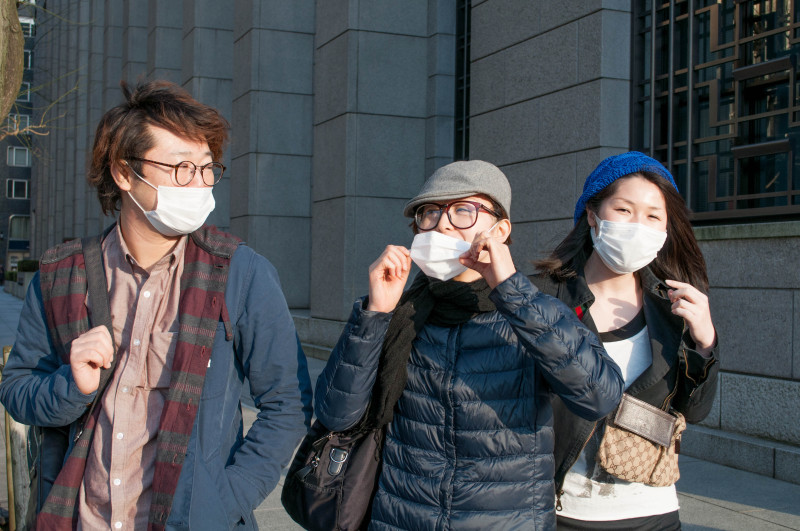
Wearing surgical masks when having a cold in the norm in Japan. With such a large population, germs can rapidly spread so masks are meant to fight this. Beginning to couch like crazy in the middle of a train ride will make you feel extremely embarrassed. The Japanese are nice and probably won’t say anything, but silence is sometimes even worse. You can avoid these situations by wearing a mask. Masks are very cheap and can be found at most stores.
While it’s good to keep in mind these rules, don’t stress too much. It is understandable that someone who didn’t grow up in Japan could make some small mistakes. The important thing is to show that you’re trying.
Have a good trip and travel!
